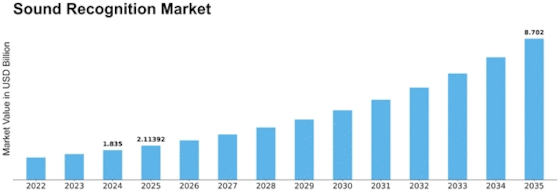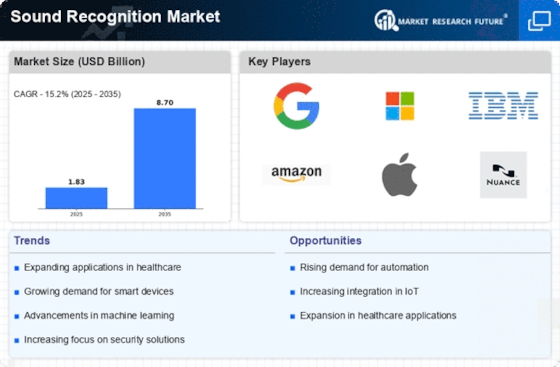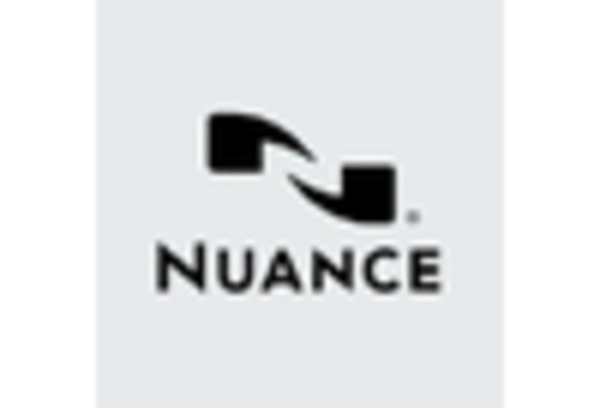Sound Recognition Size
Sound Recognition Market Growth Projections and Opportunities
The Sound Recognition Market, a rapidly evolving sector driven by advancements in technology, is influenced by various market factors that shape its growth trajectory. One key determinant is the rising demand for voice-controlled devices across diverse applications. As consumers increasingly seek seamless and intuitive interactions with their devices, the integration of sound recognition technology becomes pivotal. The proliferation of smart home devices, automotive infotainment systems, and virtual assistants underscores this trend, propelling the market forward.
Another significant factor contributing to the Sound Recognition Market is the continuous innovation in artificial intelligence (AI) and machine learning (ML) algorithms. These technologies play a crucial role in enhancing the accuracy and efficiency of sound recognition systems. Ongoing research and development efforts focus on refining algorithms to better interpret and respond to a wide array of sound patterns. This constant evolution contributes to the market's competitiveness and widens its scope of applications.
Moreover, the growing emphasis on security and surveillance has become a driving force in the adoption of sound recognition solutions. Businesses, public spaces, and even homes are increasingly incorporating sound analytics for threat detection, ensuring a proactive approach to security. This expansion of applications into security domains amplifies the market's potential and attracts investments from various industries.
The connectivity landscape also plays a pivotal role in shaping the Sound Recognition Market. With the advent of 5G technology and the Internet of Things (IoT), there is a surge in connected devices that leverage sound recognition capabilities. This interconnected ecosystem enables seamless communication between devices, creating a synergistic environment where sound-based commands and interactions become more prevalent. The market is consequently influenced by the broader technological landscape and its impact on connectivity and communication infrastructure.
Furthermore, regulatory frameworks and standards significantly impact the Sound Recognition Market. As the technology becomes more pervasive, concerns related to privacy and data protection come to the forefront. Governments and regulatory bodies are actively involved in establishing guidelines and standards to ensure responsible and ethical use of sound recognition technology. Compliance with these regulations becomes a critical factor for market players, influencing their strategies and product development.
The competitive landscape and market consolidation also contribute to the dynamics of the Sound Recognition Market. Key players in the industry continuously strive to enhance their product offerings, driving innovation and fostering healthy competition. Collaborations, partnerships, and mergers and acquisitions are common strategies employed to strengthen market presence and expand technological capabilities.
Lastly, the economic landscape and consumer spending patterns play a crucial role in the market's growth. Economic stability and rising disposable incomes often translate to increased consumer spending on smart devices and related technologies, indirectly boosting the demand for sound recognition solutions.


















Leave a Comment